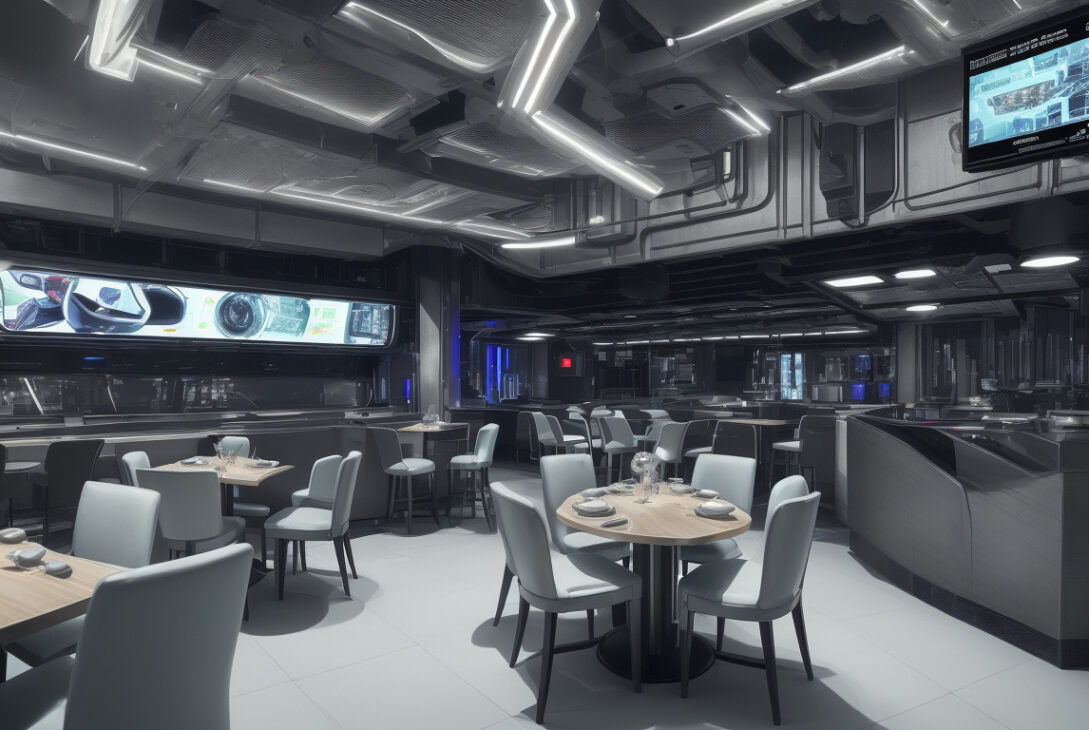FSTEC 2025 Highlights Technology’s Limitations in the Restaurant Industry
By Joanna Fantozzi, Senior Editor
September 22, 2025
KISSIMMEE, Fla.—At this year’s FSTEC conference, held from September 15 to 17, an unexpected theme emerged among the usual buzz around restaurant technology innovations: a cautious reevaluation of technology’s role and its limitations in the hospitality industry.
FSTEC 2025, a premier restaurant technology event, covered familiar topics such as loyalty programs, data analytics, and artificial intelligence applications. However, many sessions pushed back against over-investment in technology, sparking important conversations about balancing digital innovation with the fundamental human elements of hospitality.
Removing Friction in Technology Use
A persistent challenge highlighted at FSTEC was the need to ensure seamless, user-friendly technology experiences. During the “Inside the Nest” panel, Jennifer Bell, Chief Marketing Officer at Lettuce Entertain You, shared a telling anecdote about her Gen Z son abandoning a restaurant gift card due to difficulties using it through the brand’s mobile app.
“His tolerance for technology is an expectation; it’s not just a ‘nice to have,’” Bell explained. She emphasized her insistence on high vendor standards to create a frictionless customer experience.
Similarly, Iwona Alter, Chief Operating Officer of Habit Burger & Grill, noted substantial complexity in modern restaurant operations. The brand has expanded from primarily dine-in service to managing “11 possible points of entry” post-pandemic, illustrating how technology channels and tools multiply operational intricacies.
Legacy brands face particular challenges. Roland Gonzalez, CEO of Church’s Texas Chicken, highlighted that half of their guests still use cash, and franchisees in the company’s 73-year-old system often resist complicated tech. Gonzalez favors practical loyalty solutions that do not require app downloads or disrupt operations, underscoring the importance of accessibility in technology adoption.
Preserving Humanity Amid Growing AI Use
“Hospitality” was one of the most frequently mentioned themes throughout the conference, as operators and tech experts stressed that technology should not come at the expense of human connection.
Jennifer Dodd, CEO of Main Squeeze Juice Co., recounted how her team reinvigorated their use of consumer data by creating focus groups to gain direct feedback from rewards customers. “What we took from that is to double down on what brought you to the dance in the first place,” she said, emphasizing the need for technology to enhance—not overshadow—the brand’s core appeal.
During the “Pardon the Interruption — Restaurant Tech Edition” breakout, Eric Knott, Chairman and CEO of Tiki Taco, shared his brand’s hybrid approach: using both kiosks and cashiers because “a lot of our customers still want that human interaction.” He also spoke to loyalty beyond apps and points: “I like to think of loyalty in the community aspect. You build loyalty around a community around each restaurant.”
The Quest for Authentic Digital Marketing
Marketing in the digital age remains a challenge, especially when connecting with younger demographics like Gen Z. At FSTEC, speakers advocated for authentic messaging over polished, traditional advertisements.
Tom Kincaid, Enterprise Cloud Sales at Google, candidly described modern advertising as “so much horsesh*t” compared to the carefully crafted ads of previous generations. “You better figure out how to be there and have authentic messaging,” he urged.
Jon Burke, Vice President of Marketing at Qdoba, stressed the importance of meeting consumers on their preferred channels and engaging with influencers authentically. These efforts, he said, help differentiate brands in a competitive marketplace.
Technology ‘Don’ts’ from Industry Leaders
Alongside advocating caution, FSTEC speakers voiced strong opinions on popular technology trends:
-
Robotics: Tom Kincaid called robotics a “lot of investment for not a huge amount of return,” signaling skepticism around its current value proposition for many operators.
-
Data Privacy: Kevin Bentley, Head of Technology and Digital for Jollibee, highlighted growing legal challenges due to data privacy laws: “The challenge on the legal side is, how do you actually connect your data in a way that you fully know and understand the consumer?”
-
Dynamic Pricing: Eric Knott advised against using the phrase “dynamic pricing,” noting customers can become upset with day-to-day price fluctuations. He favored “smart pricing” strategies that consider competitor pricing to maintain customer trust.
Conclusion
FSTEC 2025 served as a reminder that while technology continues to evolve rapidly in the restaurant industry, it is not a cure-all. Creating seamless experiences, preserving human interaction, communicating authentically, and respecting operational and customer realities remain critical. In an age enamored with AI and automation, FSTEC’s dialogue emphasized thoughtful balance and strategic caution as the way forward for sustainable and meaningful innovation in hospitality.
About the Author:
Joanna Fantozzi is Senior Editor for Nation’s Restaurant News and Restaurant Hospitality with over seven years of experience covering the restaurant and hospitality industry. She holds a bachelor’s degree in English literature and creative writing from The College of New Jersey.










